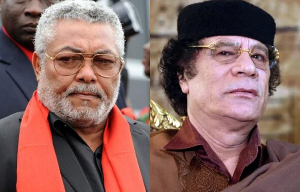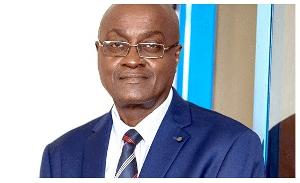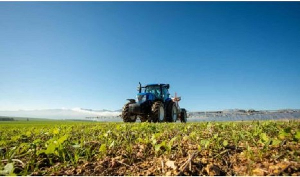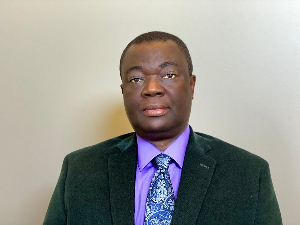Finance Minister, Emmanuel Seth Terkper has justified the confidence reposed in him by President John Dramani Mahama, despite groundswell calls within the governing National Democratic Congress for his dismissal.
Inheriting and superintending over a torrid economic regime laden with intractable woes any government relishing a second term could imagine, the Finance Minister and his abled-team at the Finance Ministry have kept their heads above the turbulent storm and have won the heart of not only President Mahama, but also Ghana's development partners and the Bretton Wood Institutions.
Although the country is not yet out of the woods as inflation continue to climb with its attendant increase in prices of goods and services and a depreciating currency among others, the Finance Minister has within almost the two and half years in office, astutely managed to chalk impressive economic successes in the midst of difficulties.
Ghana, under Seth Terkper, has successfully signed on a three-year program with the International Monetary Fund and thus expected to draw some US$918 million concessional facility.
Already, the country, as part of the three-year concessional facility, has received US$114 million from the IMF as part of balance of payment support. The country is also expected to receive about US$500 million in budgetary support from its development partners by the end of this year, 2015.
This, perhaps, explained why President John Mahama sometime last year shrugged off calls from a section of Ghanaians, particularly members of his NDC party, to sack Seth Terkper, and went ahead to publicly pass a vote of confidence in the Finance Minister.
Addressing a news conference on the state of the economy and its outlook in Accra last week, the Finance Minister Terkper revealed that measures so far taken by government to restore macro-economic stability have begun to yield results even before full effects of the just-started program with the IMF is measured.
According to him, the much criticized government’s "homegrown" economic policy which was also to combat slippages since 2012 are now beginning to take shape, assuring that prospects for the country’s medium-term economy was bright.
He said “Growth is expected to pick up over the medium-term to 9.2 per cent in 2017, inflation will be reduced to 8.2 per cent by 2017 and fiscal and current account deficits will be reduced to 3.7 per cent and 4.9 per cent respectively, in 2017. This will result in a build-up of reserves to cover 4.2 months of goods and services.”
Ghana, he said, had witnessed significant economic growth over the past decade, with real GDP growth rising steadily from 3.7 per cent in 2000 to 11.5 per cent in 2011 before decelerating to 4.0 per cent in 2014, mainly on account of the energy challenges.
“Due to a combination of unfavorable global factors and domestic challenges, the economy has come under severe stress since 2012, leading to double digit fiscal and external current account deficits,” he explained.
The fiscal slippage in 2012, he said, was mainly as a result of the higher wages and wage arrears payments under the implementation of the Single Spine Salary Structure (SSSS) and a shortfall in corporate income taxes from the petroleum sector as a result of the export of lower barrels of crude oil projected.
Other factors, Mr. Terkper added, were the high interest rate cost burden arising from the steep rise in short-term domestic interest rates, shortfalls in grants from donors, higher subsidies on utilities and petroleum, as well as higher spending on goods and services, in contrast with a lower estimation of capital expenditure.
He, however, observed with satisfaction that Ghana had attained a middle-income status and there was no way it was going to slip out of that rank.
Given the government’s commitment to fiscal consolidation, he said, the 2015 budget outlined additional measures and reforms which formed a significant part of the course of action under the program with the International Monetary Fund (IMF).
“These measures, in addition to earlier ones being implemented, are expected to result in a significant reduction in the fiscal deficit to ensure debt sustainability and macroeconomic stability,” he added.
Recounting the progress made, he said the wage bill as a ratio of gross domestic product (GDP) reduced from 8.9 per cent in 2012 to 8.7 per cent in 2013, 8.3 per cent in 2014 and was expected to further decline to 7.7 per cent in 2015.
Similarly, he said, the wage bill, including wage arrears cleared as a ratio to tax revenue, had declined from 68.2 per cent in 2012 to 65.1 per cent in 2013, 52.1 per cent in 2014 and was expected to decline further to 46.1 per cent in 2015.
He said subsidies on petroleum prices and utility tariffs had been removed, while corporate income tax from the oil companies had significantly turned positive, adding the shortfall in corporate income receipts in the petroleum sector has been reversed.”
President John Mahama last year shocked many when he openly revealed that some senior members of his ruling NDC party had approached him to sack Seth Terpker for failing to address shocks in the economy.
At a meeting with Managing Director of Barclays Bank Ghana, Patience Akyianu, at the Flagstaff House, President Mahama said “I mean several times they’ve interceded with me to sack Seth because he’s hurting the politics. He doesn’t understand the politics. ‘If there’s no money he should go and borrow’, as if it were that easy…It’s a vicious cycle we need to break and that is why a lot of the reforms that Seth is carrying out in the finance ministry with regards to the GIFMIS and making sure we budget properly and MDAs follow budget discipline and all that are issues that we’re trying to introduce."
The President’s verdict on Seth Terkper, which was highly criticized by many including this paper, seemed to be yielding positive results as all economic indicators point to the fact that country’s economy is heading for recovery.
This may have resulted in Ghana receiving favourable responses from its development partners including, the IMF and the World Bank. Any wonder, funds and grants previously withheld by these countries and institutions are now finally being released to Ghana? Stay tuned.
General News of Sunday, 31 May 2015
Source: The Al- Hajj













